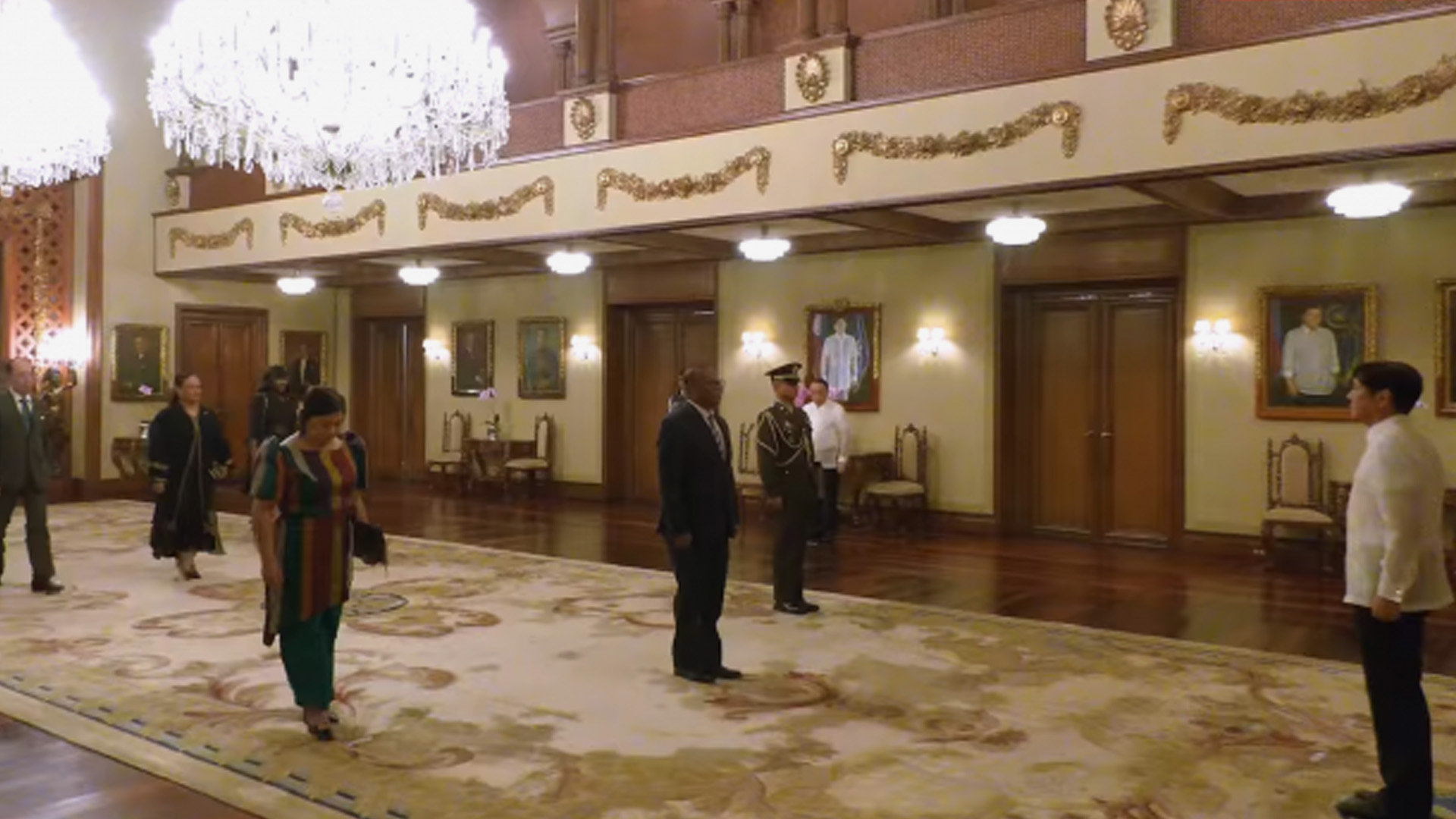The Philippines and Namibia have agreed to bolster their trade and industry, agriculture, and technical cooperation, Malacañang said Friday.
This developed during the presentation of credentials of Namibia Non-Resident Ambassador to the Philippines Herman Pule Diamonds to President Ferdinand R. Marcos Jr. in a ceremony at Malacañan Palace in Manila on Thursday, Presidential Communications Office (PCO) Secretary Cheloy Garafil said in a statement.
“The governments of Namibia and the Philippines are now exploring more comprehensive bilateral ties as they agreed on Thursday to enhance their common areas, especially on trade and industry, agriculture, technical cooperation, and the welfare of their nationalities,” Garafil said.
Marcos told Diamonds that the Philippines could assist Namibia in developing its agricultural sector, considering that the International Rice Research Institute is located in Los Baños, Laguna.
He added that the Philippines also has its own rice institute and educational institutions that are doing research on agriculture and agriculture development.
“So, there is a great deal of knowledge,” Marcos said, as quoted by the PCO. “We take pride in the fact that many of the agriculturists and agronomists around Southeast Asia trained with us and we can claim credit for some of the success that they are enjoying now. So, I think that is something that we could certainly look into.”
Diamonds said Namibia is also keen on improving its trade and investment ties, as well as technical cooperation with the Philippines.
He noted that Namibia could adopt some technological advances in the Philippines.
“So, my task is to see how we can perhaps, maybe turn this around and make most space for us to cooperate (in terms of) trade and investment. So, this is the reason why we are here … So, I was the one saying, look here we have to diversify. And that is precisely what I’m looking at coming,” Diamonds said.
“So, we are mostly in those areas. We also have the same challenges. As the Philippines (there are) technologies, which we do not have. So, this is also an area where we can see technical cooperation.”
He also expressed his appreciation for the Philippine government’s resolve to protect the welfare of the overseas Filipino workers (OFWs) and the Filipino community in Namibia.
Marcos said the Philippine government is “very proud” of the OFWs as “they do a great deal for our country and they have polished and made our reputation all over the world and again.”
Based on 2020 figures, a total of 182 Filipinos are residing in Namibia.
Diplomatic relations between the Philippines and Namibia were established on May 17, 1996.
Since the establishment of these diplomatic ties, Filipino professionals and experts in various fields, particularly in agriculture, education, and health, have contributed to Namibia’s socio-economic development after gaining independence from South Africa in 1990.
Trade relations between the two countries recorded a total of USD166,748. (PNA)





